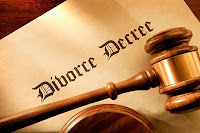There’s so much difference of opinion in America, not only about issues but also about how to approach them. A recent NYT article observes that nowadays everybody is a constitutional scholar and is preoccupied with whether the government’s actions are in accord with that document. Meanwhile, you’ve got conservative Christians similarly concerned about living in conformity with biblical dictates. Those two works, the Constitution and the Bible, are at the heart of many American thoughts and beliefs; it’s their interpretation that causes so much brouhaha.
People who take an originalist stance regarding the Constitution believe that we ought to interpret its meaning as the Framers intended in their time. This strikes me as being perfectly parallel to a fundamentalist reading of the Bible – particularly the Old Testament. I’d say it’s dollars to donuts that a Venn diagram of those two groups would show some serious overlap.
 A few weeks ago I posted about people’s tendency to take certain artifacts of the written word either (a) literally or (b) in an interpretation that suits their own worldview. This certainly goes on all the time. Why is that, do you suppose? Dare I suggest (with no claim to this being an original thought) that the American public is much like the Roman god Janus, who looked both backward and forward? Some folks look to the past and want to preserve it; others look to the future and want to improve it. The former cling unquestioningly to the authority of what has gone before, especially as codified in key documents; the latter want to adapt to what they think is called for by changes in demographics, public sentiment, technology – just keepin’ up with them changes. Some of us are traditionalists, others progressives, and it seems like there’s no reconciling the two.
A few weeks ago I posted about people’s tendency to take certain artifacts of the written word either (a) literally or (b) in an interpretation that suits their own worldview. This certainly goes on all the time. Why is that, do you suppose? Dare I suggest (with no claim to this being an original thought) that the American public is much like the Roman god Janus, who looked both backward and forward? Some folks look to the past and want to preserve it; others look to the future and want to improve it. The former cling unquestioningly to the authority of what has gone before, especially as codified in key documents; the latter want to adapt to what they think is called for by changes in demographics, public sentiment, technology – just keepin’ up with them changes. Some of us are traditionalists, others progressives, and it seems like there’s no reconciling the two.Just as the Bible is open to interpretation – especially when it comes to narratives that clearly fall in the realm of folklore and myth – the same is true of the Constitution. And just as the authors of the various biblical books cannot be said to be infallible, neither can the Framers. (After all, they beat around the bush when it came to the slavery issue.) They fashioned a blueprint for government that was appropriate to their times; had they had a soothsayer in their midst who could have seen what the United States would become over the course of two hundred-plus years, they might well have run for the hills. And while they did provide an amendment process, they surely didn’t anticipate the complications posed by fifty states and 300 million people, not to mention expanded suffrage. I’m just sayin’ that being inked on parchment ain’t the same as being engraved in stone, and appropriateness to 1787 is no more an answer for today’s ills than are biblical injunctions against eating shellfish. Arguing a course of action simply because it’s prescribed in either work is appealing to authority that’s long dead.
We are our own authority.
Okay, I recognize that you have to have some sort of foundation, otherwise you’ve got anarchy on your hands. The U.S. Constitution is obviously an excellent framework for a representative form of government that has weathered a lot of storms, but its very adaptablilty (or nonspecificity) throws us into constant perplexity. We already have different translations of the Bible (and conservatives are still trying to rewrite it); maybe it’s time we all got together to rewrite the Constitution so we can stop arguing over what it really means and get on the same page for a change. We are our own authority. We can rewrite the rules if we want – we just all have to agree.
But what are the odds of such agreement? That’s about as promising a scenario as the situation the Framers faced: advocates of a strong central government vs. states-righters, slave-holders vs. those who believed that “all men are created equal”... We’d be right back where they started, with abortion replacing slavery as the divisive moral quandary.
Maybe we could do it right next time and create two separate nations, one for traditionalists to reenact The Handmaid’s Tale and one for progressives to have a shot at Ecotopia. Sure, a lot of us will have to pull up stakes, just like India in 1947, but it might be worth it to have like-minded folks for neighbors. I for one am getting tired of feeling like half the readers who post opinions to the on-line Prescott Courier are people I’d just as soon cross the street to avoid.
E pluribus duo. Isn’t that the ways it’s been from the start? Federalists and Jeffersonians, Republicans and Democrats, Traditionalists and Progressives, all trying to foist their points of view on the other side and making the other guys miserable.
We’ve been making each other miserable for too long. Let’s wake up and smell the coffee – your basic Maxwell House for one side, fair trade organic for the other – and file for divorce before things get any uglier.



No comments:
Post a Comment